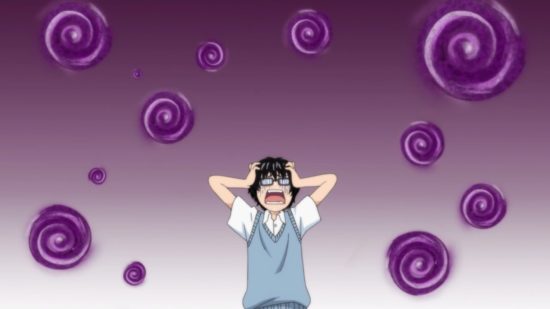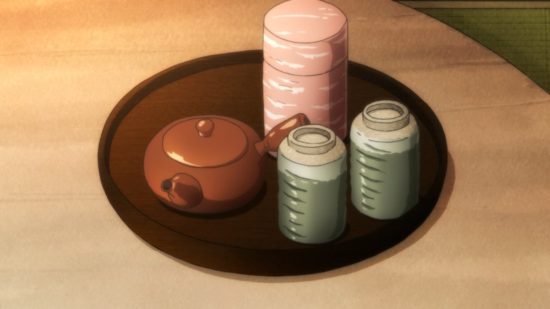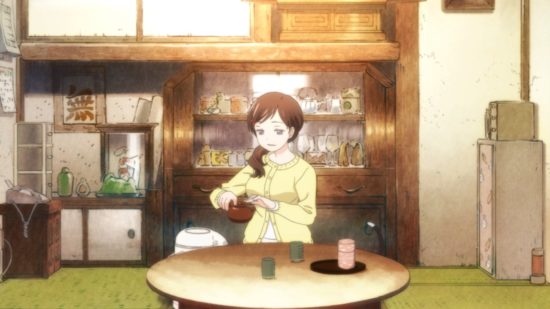
One fascinating but sometimes frustrating feature of anime is that key facts about character relationships are often conveyed by the level of politeness in their speech. This often is not straightforward. A higher level of politeness can indicate respect and admiration. Or, since greater formality means greater distance, it could indicate resentment and hostility. (The latter is particularly common in women’s speech.)

Generally it’s a change in the politeness level that’s most significant. If a woman normally addresses her husband as “anata” she may switch to the less formal “omae” when she’s mildly annoyed with him. On the other hand her children will probably tremble in their boots if she addresses them using polite verb forms. (“Ii desu ka?”) That means they are in BIG trouble.
I noticed a startling example of this in a recent episode of the second season of March Comes In Like a Lion (Crunchyroll), when Rei asks Akari about her father.

“It’s not a very pleasant story so I’ll just give you the basics. He told us he got a new girlfriend…and then just left us. Now he’s living in a new home and has another child. Oh, that’s right…We have bean jam pancakes. Want some?”
“Another child” is “betsuni oko-san”.
Now “oko-san” is a polite and respectful way to refer to someone else’s children. Sort of like “your beautiful and intellegent child.” But you would never ever use such honorifics to refer to a member of your own family. Akari is saying that her half-sibling is absolutely not a member of her family.
This is startling because usually we only see the kind and nurturing side of Akari. Now we see an Akari who is cold and unforgiving, not only toward the father who hurt her beloved sisters, but also toward an innocent child.

Rei, our generally clueless protagonist, definitely understands this. He can be dense, but he’s still Japanese and rules about when to use honorific forms are pretty basic.

But there’s a message on another level that I don’t think he understands: “You’re basically a member of our family now so you need to know this.” This falls into the category of “shameful family history” and is not something Akari would discuss with an outsider. There are any number of Japanese evasions that she could and would use if she only thought of him as a friend.

